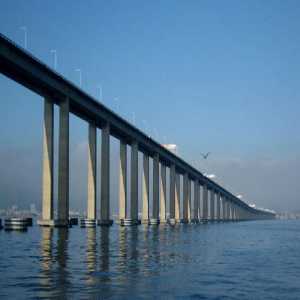7 Top African Rivers And Their Economic Importance

The Rivers in Africa have added more beauty to the diversity of the African continent. So many things may be known about Africa but more things are still unknown to many.
The seven rivers in Africa have their geographical importance as well as their economic importance to the country that lay along its path.
Let us find out what these seven rivers are, their length as well as their economic importance.
#7. River Orange
This is the number seventh river on the top list of rivers in Africa. The Orange River has its source from the South African Drakensberg Mountains. It passes through the likes of South Africa, Namibia, and Botswana.
It is 2,092 kilometers long and it is economically used for tourism (where rafting takes place), and power generation (especially in Botswana and Namibia).
#6. River Kasai
The sixth river on the list is the Kasai River. River Kasai cuts across Angola which is its country of origin then winds along the borders of the Democratic Republic of Congo and Angola.
It is about 2,153 Kilometer long. The notable feature of the river is the presence of Mai-Munere Fall. Economically, it is used for agriculture as well as the main trade arteries in Africa.
#5. River Ubangi
River Ubangi occupies the fifth river on our list because its length is 2,270 kilometers and it is one of the largest rivers on the African continent. It went through two major countries, which are the Republic of Congo and the Democratic Republic of Congo.
One notable feature of the Ubangi River is that it forms a tributary with the Congo River. Economically, it is used for agricultural purposes and fishing for the locals.
#4. River Zambezi
The Zambezi River takes the fourth position on our list of top rivers in Africa. It is 2,574 kilometers long and flows directly to the Indian Ocean. The river passes through Tanzania, Namibia, Malawi, Zimbabwe, Angola, and Botswana.
The notable features of the Zambezi River are Chavuma Falls, Ngonye Falls, and Victory Falls. The river is economically used for fishing and farming.
If you love rafting, wave boarding, or surfing, then the Zambezi River is a place to visit.
#3. River Niger
River Niger is the third-longest river in Africa. It is 4200 kilometers long. It flows through several countries, among which we have Niger Nigeria, Mali, Guinea, Ivory Coast, Chad, Cameroun, Algeria, Burkina Faso, and Benin.
Economically it provides one of the longest water transport routes across Africa. It is also used for fishing and crop production.
#2. Congo River
Now taking second place is the Congo River. With a length of 4,700 kilometers, it has one of the deepest points among the African rivers. The highest depth of the Congo River is 220m.
The Congo River passed through five different countries namely: the Democratic Republic of Congo, Central African Republic, Angola, Cameroun, and the Republic of Congo.
It is used to generate electric power in some of the host countries. It is also used for agricultural purposes.
#1. Nile River
The number one in terms of the length of rivers in Africa is the Nile River. It has a length of 6,650 kilometers. It passes through Sudan, Egypt, Rwanda, Ethiopia, and Uganda.
One notable feature of the Nile River is that it flows from southern Africa to North Africa.
Economically, it is vastly used for agricultural purposes and a country like Egypt depends on it for its major supply of water for irrigation.
Now we hope you have seen the beauty of these seven important rivers in Africa. If you love traveling, why not take a visit to one of the host nations of these great rivers, and you will see for yourself.
Author Bio
Contributor comprises full-time and freelance writers that form an integral part of the Editorial team of Hubslides working on different stages of content writing and publishing with overall goals of enriching the readers' knowledge through research and publishing of quality content.
Blog Post Comments
No Comments!
At present there are zero comments on this blog post.
Why not be the first to make a comment?
Search Blog
Blog Categories
There are zero sub-categories in this parent category.









